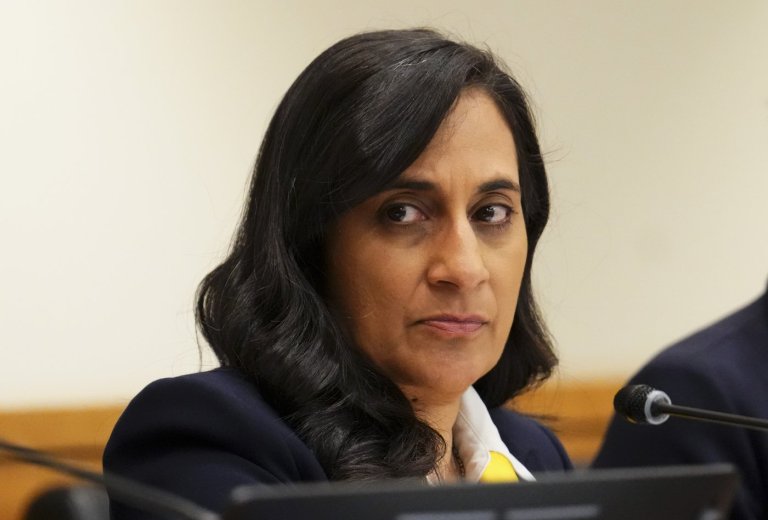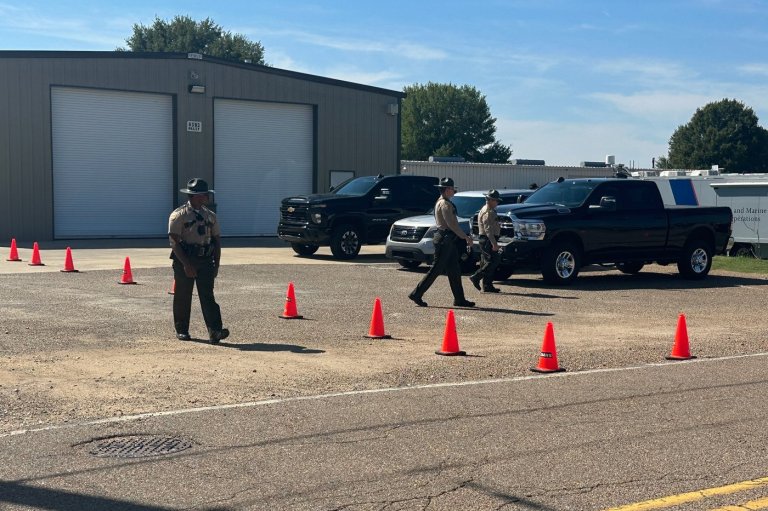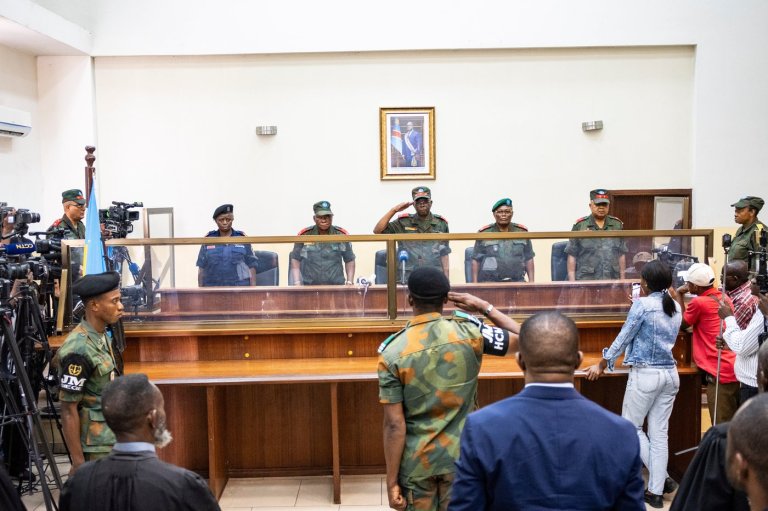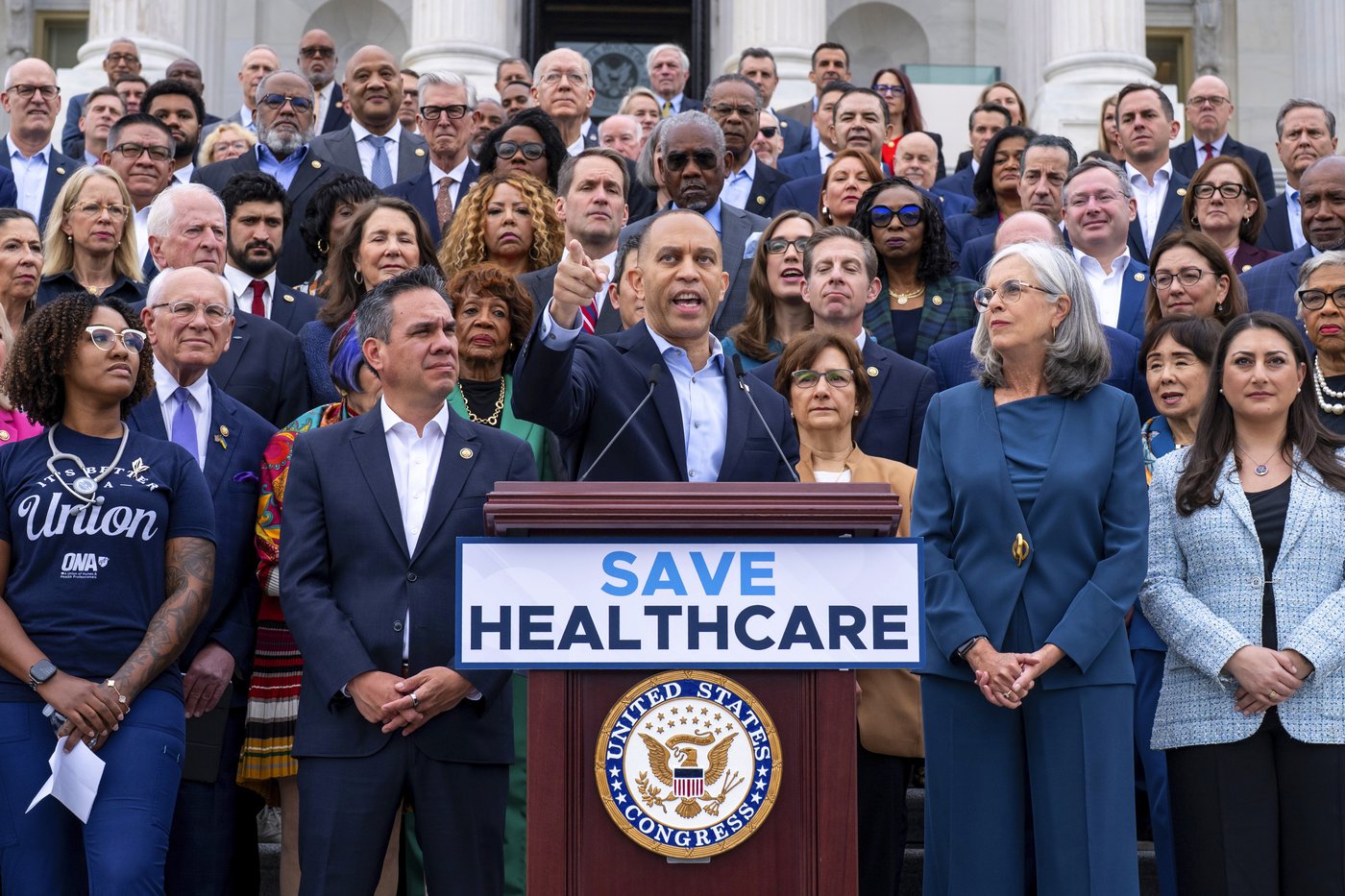
US government on brink of first shutdown in almost 7 years during partisan standoff
WASHINGTON (AP) — A partisan standoff over health care and spending is threatening to trigger the first U.S. government shutdown in almost seven years, with Democrats and Republicans in Congress unable to find agreement even as thousands of federal workers stand to be furloughed or laid off.
The government will shut down at 12:01 a.m. Wednesday if the Senate does not pass a House measure that would extend federal funding for seven weeks while lawmakers finish their work on annual spending bills. Senate Democrats say they won’t vote for it unless Republicans include an extension of expiring health care benefits, among other demands. President Donald Trump and his fellow Republicans say they won’t negotiate, arguing that it’s a stripped-down, “clean” bill that should be noncontroversial.
It’s unclear if either side will blink before the deadline.
“It’s only the president who can do this. We know he runs the show here,” Senate Democratic leader Chuck Schumer said Tuesday morning after a bipartisan White House meeting the day before yielded little apparent progress. Schumer said Republicans are trying to “bully” Democrats by refusing to negotiate.
“Republicans have until midnight tonight to get serious with us,” Schumer said.
Trump posted a fake, mocking video of Democrats after the meeting. “They lost the election in a landslide, and they don’t change,” Trump said Tuesday morning.
While partisan stalemates over government spending are a frequent occurrence in Washington, the current impasse comes as Democrats see a rare opportunity to use their leverage to achieve policy goals and as their base voters are spoiling for a fight with Trump. Republicans who hold a 53-47 majority in the Senate would likely need at least eight votes from Democrats to end a filibuster and pass the bill with 60 votes, since Republican Sen. Rand Paul of Kentucky is expected to vote against it.
The last shutdown was in Trump’s first term, from December 2018 to January 2019, when he demanded that Congress give him money for his U.S.-Mexico border wall. Trump retreated after 35 days — the longest shutdown ever — amid intensifying airport delays and missed paydays for federal workers.
No agreement at the White House
The bipartisan meeting at the White House on Monday was Trump’s first with all four leaders in Congress since retaking the White House for his second term. But Trump made it clear he had little interest in negotiations.
“Their ideas are not very good ones,” Trump said of Democrats before the meeting.
Schumer had appeared to be holding out hope that Trump could be open to a deal. He told reporters afterward that the group had “had candid, frank discussions” about health care. He said Trump “was not aware” of the potential for health insurance costs to skyrocket once expanded Affordable Care Act tax credits expire Dec. 31.
But Trump did not appear to be ready for serious talks. Hours later, Trump posted a fake video of Schumer and House Democratic Leader Hakeem Jeffries taken from footage of their real press conference outside of the White House after the meeting. In the altered video, a voiceover that sounds like Schumer’s voice makes fun of Democrats and Jeffries stands beside him with a cartoon sombrero and mustache. Mexican music plays in the background.
At a news conference on the Capitol steps Tuesday morning, Jeffries said it was a “racist and fake AI video.”
Schumer said that “we have less than a day to figure this out” and Trump is trolling on the Internet “like a 10-year-old.”
Democrats’ health care asks
Millions of people could face higher insurance premiums if the health care subsidies expire at the end of the year. Congress first put them in place in 2021, during the COVID-19 pandemic, to expand coverage for low- and middle-income people who purchase health insurance through the Affordable Care Act.
Democrats say they want the subsidies immediately extended. They have also demanded that Republicans reverse the Medicaid cuts that were enacted as a part of Trump’s “big, beautiful bill” this summer and for the White House to promise it will not move to rescind spending passed by Congress.
“We are not going to support a partisan Republican spending bill that continues to gut the health care of everyday Americans,” Jeffries said on Monday.
Senate Majority Leader John Thune has pressed Democrats to vote for the funding bill and take up the debate on tax credits later. Some Republicans are open to extending the tax credits, but many are strongly opposed to it. Thune has said Republicans would want new limits on the expanded subsidies — something Democrats would not likely agree to.
In a back-and-forth with Schumer on the Senate floor Tuesday morning, Thune said Republicans “are happy to fix the ACA issue” and have offered to negotiate with Democrats — if they will vote to keep the government open until Nov. 21. Thune said Democrats would “have the same leverage then” as they do now.
A crucial, and unusual, vote for Democrats
Democrats are in an uncomfortable position for a party that has long denounced shutdowns as pointless and destructive, and it’s unclear how or when it would end. But party activists and voters have argued that Democrats need to do something to stand up to Trump.
Some groups called for Schumer’s resignation in March after he and nine other Democrats voted to break a filibuster and allow a Republican-led funding bill to advance to a final vote.
Schumer said then that he voted to keep the government open because a shutdown would have made things worse as Trump’s administration was slashing government jobs. He says now that he believes things have changed, including the passage this summer of the massive GOP tax cut bill that reduced Medicaid.
Some of the Democrats who voted with Schumer in March to keep the government open were still holding out hope for a compromise. Michigan Sen. Gary Peters said Monday there’s still time before the early Wednesday deadline.
“A lot can happen in this place in a short period of time,” Peters said.
Shutdown preparations begin
The stakes are huge for federal workers across the country as the White House told agencies last week that they should consider “a reduction in force” for many federal programs if the government shuts down.
That means that workers who are not deemed essential could be fired instead of just furloughed. Either way, most would not get paid.
Trump said Tuesday that “we may do a lot” of layoffs, “and it’s only because of the Democrats.”
Trump’s budget director, Russ Vought, told reporters at the White House that a shutdown would be managed “appropriately, but it is something that can all be avoided” if Senate Democrats accepted the House-passed bill.
___
Associated Press writers Seung Min Kim, Kevin Freking and Joey Cappelletti in Washington contributed to this report.
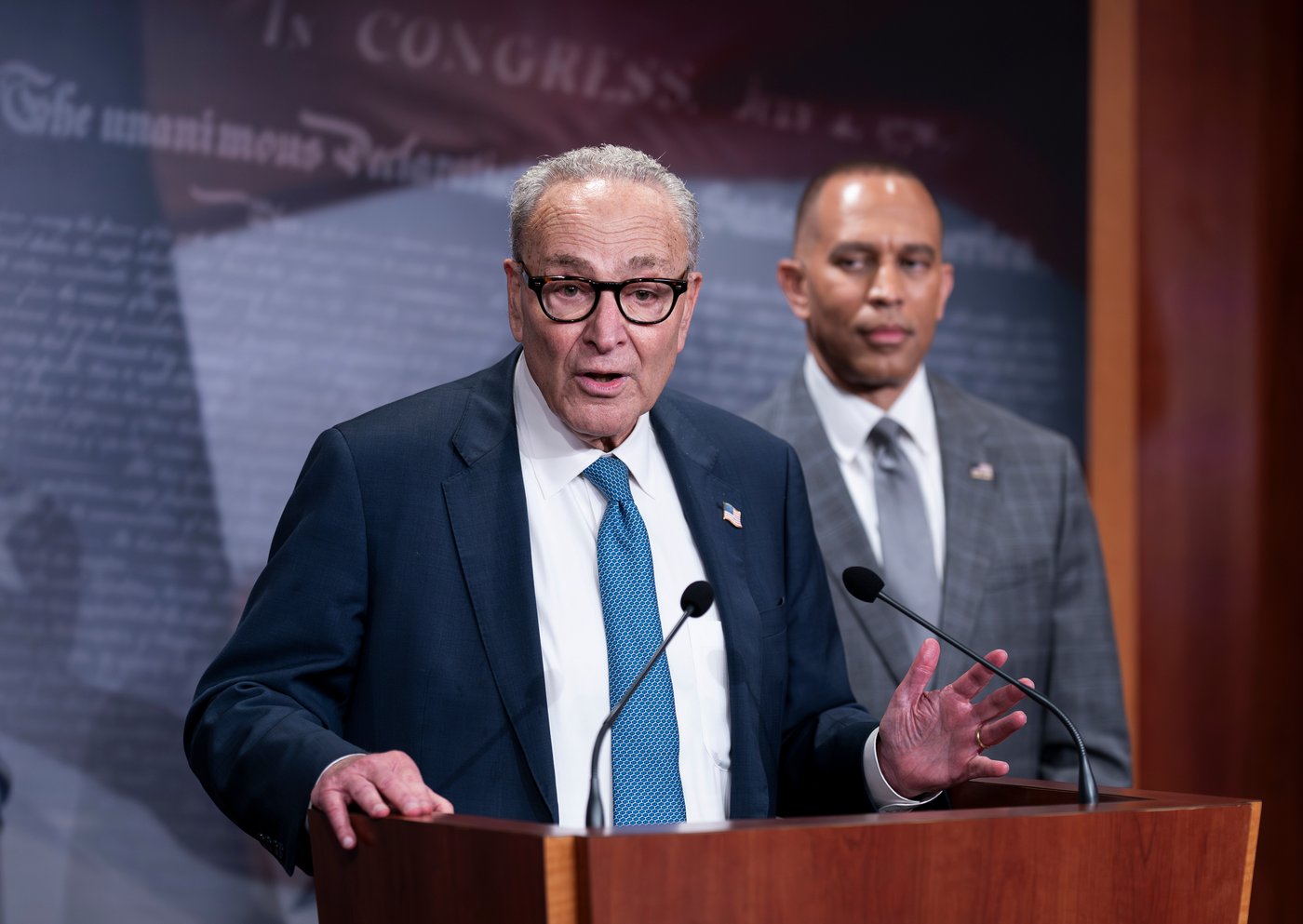
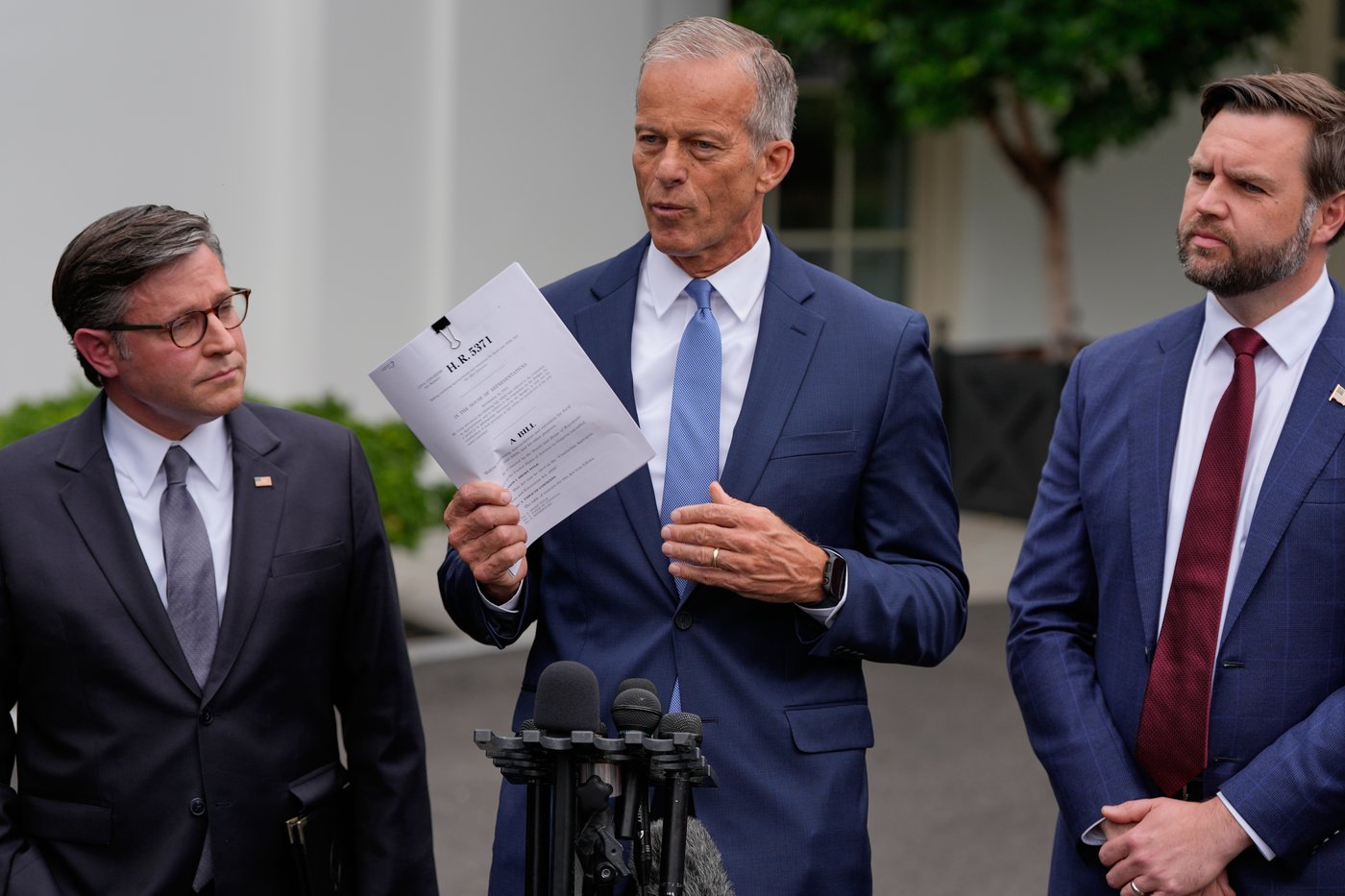
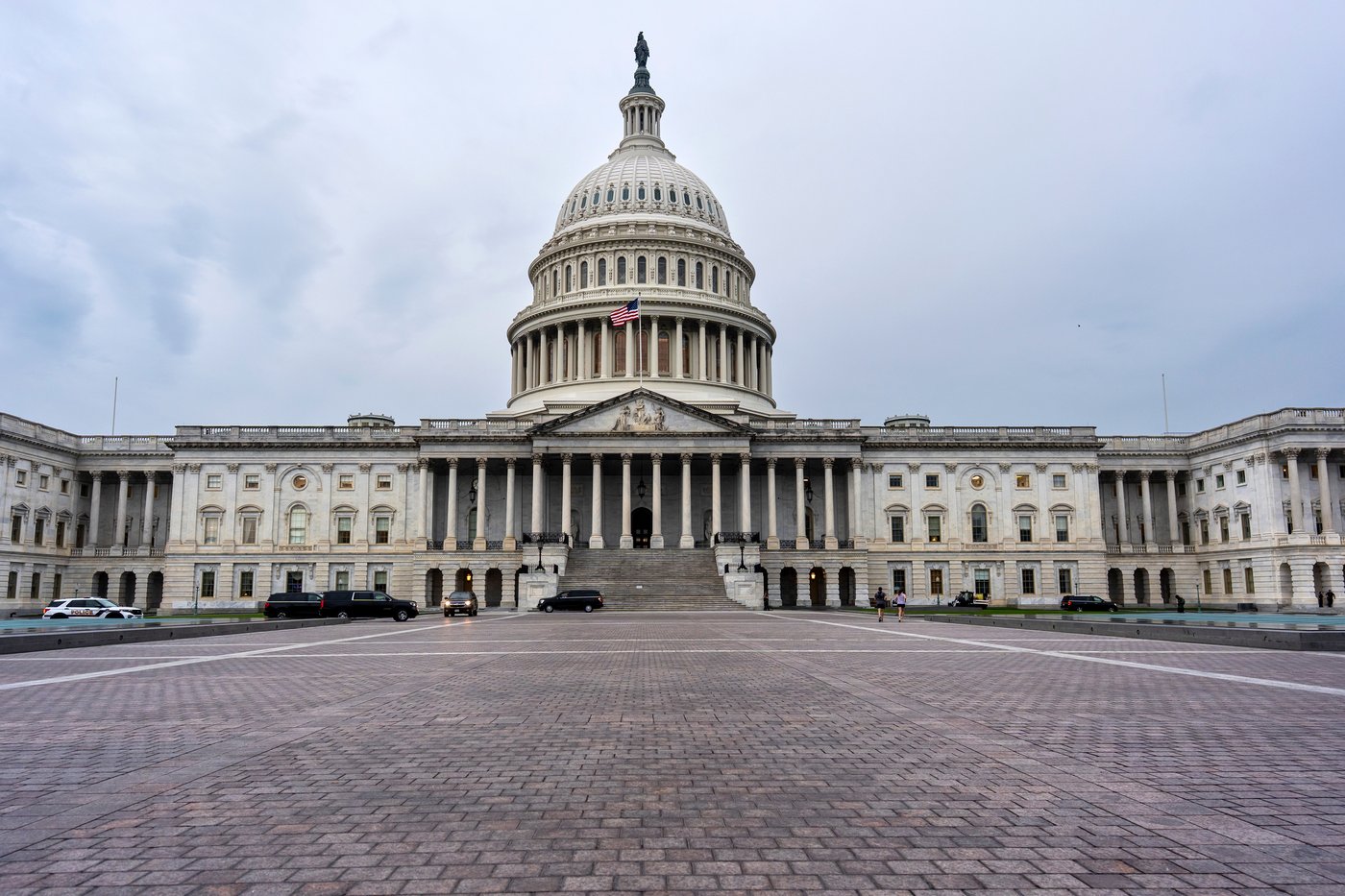
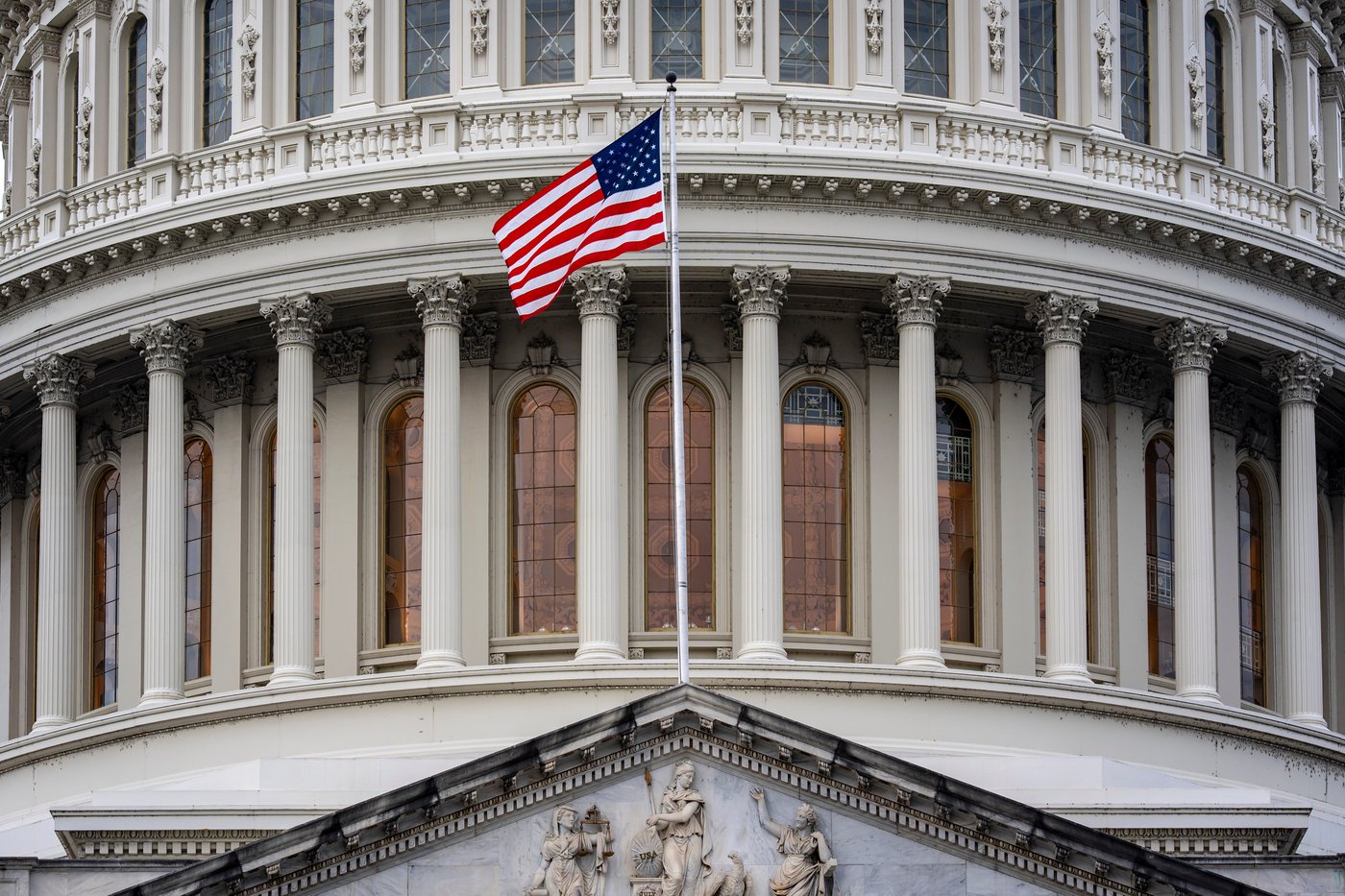
Join the Conversation!
Want to share your thoughts, add context, or connect with others in your community?
You must be logged in to post a comment.













